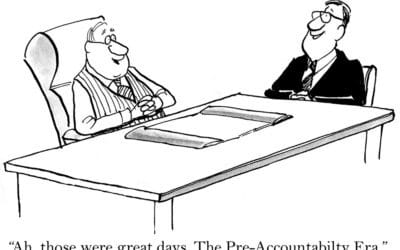
Another Monday morning and I’m looking at the list of things that had to be done last week but aren’t.
I guess they didn’t have to be done.
Some of us have boundary-setting challenges that make our lives more difficult when we start babysitting monkeys from other people’s circuses. And then some of us have deadline-setting challenges that make those around us stop taking our sense of urgency seriously.
If you’ve ever made it to the end of a day without getting your ‘to do’ list done, it may not be an expectation problem as many would insist; you might just be eligible to claim membership in the Artificial Deadline club.
Welcome to the club. My name’s Kevin and I set artificial deadlines.
The number one reason people (including ourselves) don’t meet the deadlines we set is there are no consequences for non-compliance. We tend to think we’re being blown off when, in reality, no one but us suffers when we get information just after the nick of time.
My girls grew up believing that if you wait til the last minute, it only takes a minute. We may claim we do our best work under pressure, but we can’t ignore the anxiety of having a deadline looming over our heads. As they got older, we added the Ross caveat: some tasks take more than a minute so you’re going to be late. That’s when the excuse making starts.
Here are some common artificial deadline practices I’ve seen – and used unsuccessfully – over the years and suggestions to stop using them:
- I have to do it today. If it really has to be done today, it better be the first thing we do or else be a scheduled event on our calendar. Otherwise, it’s aspirational and will get overcome by events of the day. We’ll see it again on our list for tomorrow’s have-to list.
- I need this before my 2:00 meeting. And here it comes sliding into home just before we leave for the meeting. Sure hope it wasn’t something we needed for the meeting; otherwise it’s just reading material for when we stopped paying attention to whoever is droning on during the boring meeting. If we need it for a meeting, we have to suspense it with enough time to review and ask questions before we take it with us.
- I need this by the end of the day. Who’s end of the day… ours or theirs? Why then? Do we plan on working on it at the dinner table? After dinner? If we’re not going to look at it until tomorrow, why do we care when it’s finished as long as it’s there when we need it and of expected quality. I’ve found that “I want to review this first thing tomorrow morning because…” sets a clearer expectation for the preparer, and I’m happier with the product.
- I need this by the end of the week. See above. Are we going to spend our weekend looking at something while the preparer celebrates not having to think about it anymore? I doubt it. Don’t forget to explain why it’s important to have it Monday morning.
- And finally…
- Let’s try to have this done by blah, blah, blah. Good luck with that. In my experience, no deadline means no results. That’s like my wife asking, “do you think we could trim the hedges sometime soon?”
Not only do we bring this frustration on ourselves, but setting Artificial Deadlines erodes our credibility with others. If it hasn’t already, the practice is likely to leak over into our “I’ll have it to you by…” promises, and the next thing we know we’re leaders without integrity.
Speaking of which, I better wrap this up. It’s Monday morning and this piece is due last Friday.
How about you? Are you challenged with setting Artificial Deadlines? It’s a club membership you could do without in 2022.
But it’s up to you, leaders.
Related Articles
Boss 2.0: The Future of Leadership
-- Buckle up, buttercup, it's going to be a wild ride! D. Kevin Berchelmann The business landscape isn't just changing, it's doing Warp 10 while too many leaders are still metaphorically screwing around with their flip phones. You can almost...
Accountability Isn’t a Trust Fall, Susan
So, we’ve all heard the word "accountability" bandied about, right? You know – sitting in a meeting with someone droning on about holding people accountable like it's some sort of magical solution; babbling about tracking progress, scrutinizing deadlines, or making...
I’m Outta Control! You should try it sometime.
It took me a lotta years to learn a lesson that everyone else knew but me. And I wasted a lot of time and energy on fool’s errands fighting my way forward or dragging my heels kicking and screaming to prove everyone else wrong. Once I tell you what it is, you’re...





